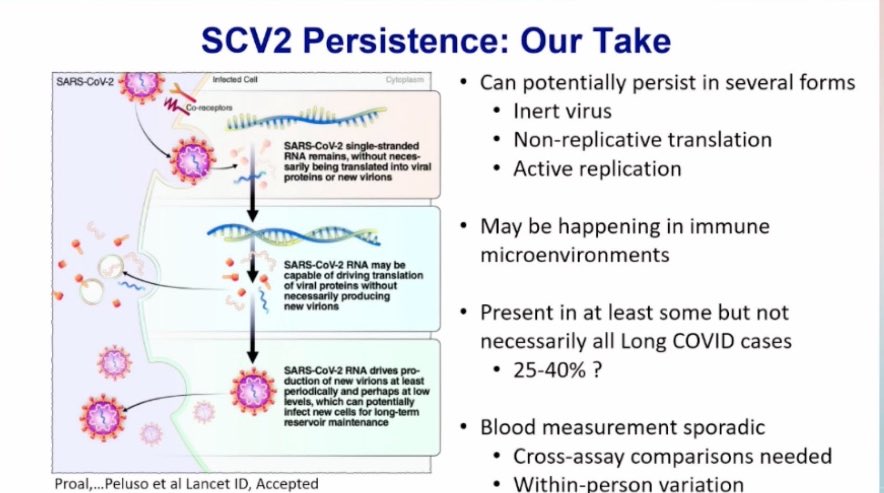1/ PolyBio's Dr. Michael Peluso presented evidence from the PolyBio-supported Long-Term Impact of Infection with Novel Coronavirus (LIINC) study out of UCSF at 2024's Demystifying Long COVID International Conference.
Here are the highlights.
Here are the highlights.

2/ Antigen Persistence in LIINC Study
• Spike antigen persistence in post-acute COVID patients detected in 13% from 3-6m, 11% from 6-10 m & 7.4% from 10-14 m after infection
• 2x higher risk of Spike persistence in hospitalized patients
• Spike antigen persistence in post-acute COVID patients detected in 13% from 3-6m, 11% from 6-10 m & 7.4% from 10-14 m after infection
• 2x higher risk of Spike persistence in hospitalized patients

3/ Evidence of Antigen Persistence from CTLs
• CD8+ T-lymphocytes specific for Spike were detected in 45% of Long COVID patients vs. 5% of the general population (via plasma samples)
• Provides evidence that the S antigen persists in LC patients
• CD8+ T-lymphocytes specific for Spike were detected in 45% of Long COVID patients vs. 5% of the general population (via plasma samples)
• Provides evidence that the S antigen persists in LC patients

4/ What We Know About Viral Persistence
• SARS-CoV-2 can persist via active replication or as an inert virus, or simply involve production of viral proteins
• Immune microenvironments may be a site of replication
• SARS-CoV-2 can persist via active replication or as an inert virus, or simply involve production of viral proteins
• Immune microenvironments may be a site of replication

5/ This evidence was gathered as a part of the PolyBio-supported LIINC study. LIINC is continuing to collect patient biopsy samples from a variety of tissues to assess viral persistence in Long COVID:
polybio.org/projects/liinc…
polybio.org/projects/liinc…
• • •
Missing some Tweet in this thread? You can try to
force a refresh









